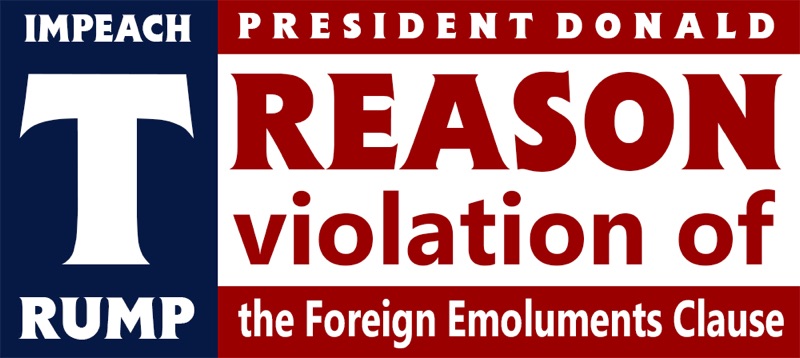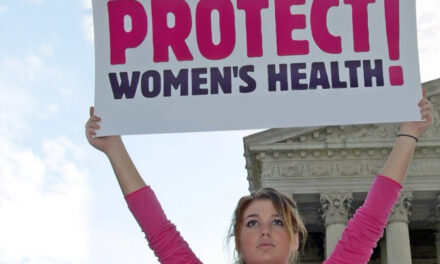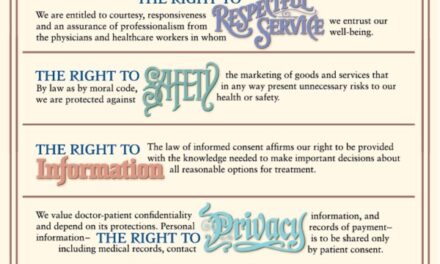Introduction “Call me Nixon.1 ”
As an undergraduate, during my efforts to join the nation’s oldest Black collegiate fraternity, I was chosen by my peers to serve as the president of our group of pledges, also known as a “pledge line.” It was the spring of 1988. Since President William Jefferson Bill Clinton would not be impeached for another ten (10) years 2 , at the time I was engaged in the college life Richard M. Nixon was the name most readily associated with presidential impeachment3 . Consequently, following a particularly egregious mistake of my own concoction, one of the fraternity members not-so-affectionately dubbed me “Nixon.” His was a joking reference (at least I hope), a not-so-subtle suggestion that my exhibitions of leadership warranted impeachment. My esteemed “big brother” was implying that I should be unceremoniously removed from office, my position of pledge line president, before the conclusion of my term!
Within the first one-hundred (100) days of his presidency, Donald J. Trump has presented a formidable challenge to the existence of the American form of government. American citizens shall either proceed as a nation respectful of the rule of law, rules chosen by the people, or else be resigned to exist as a people susceptible to worshipping the principles of “white male privilege” and/or “white male immunity from scrutiny”4 . Thankfully, the Framers of our republic foresaw Mr. Trump, or at least facsimiles thereof, and embedded safeguards within the Constitution to deal with him. We need only unpack them.
As with many legal terms of art, “impeachment” has been widely misunderstood and misused. There is more to the term than what initially meets the eye. “Sexual assault” serves as a vivid example of common colloquial misapplications of legal terminology. When actual physical, sexual contact is involved, whether in the criminal or civil context, the legally precise term is
1 Ode to author Herman Melville, who published Moby Dick in 1851. As “Ishmael,” I will “in some dim, random way, explain myself I must, else all these [paragraphs] might be naught.'” 2 The Clinton impeachment proceedings were initiated on December 20, 1998. 3 It may be noted that I am more than a little grateful that none of the t-shirts and sweaters bearing my fraternity nick-name features the “Clinton” nomenclature. It is also interesting to note that there have only been two (2) sitting U.S. Presidents who have been formally impeached. Contrary to popular belief, neither impeached president was named, “Richard M. Nixon.” Presidents Andrew Johnson and William Jefferson Clinton are the only presidents for whom the impeachment process went as far as a Senate trial; President Nixon resigned in 1974 before the House could vote on impeachment. Like President Johnson in 1868, President Clinton was acquitted by the Senate in 1999.
4 This article will not repeat the instances of white male privilege exhibited by Mr. Trump. From his May, 1989 calls for the execution of wrongfully accused juveniles in New York City, to his 2005 boasts concerning his own engagement in acts of sexual battery or his 2016 denigration of a disabled news reporter, Mr. Trump’s actions have been widely chronicled. My focus is also not upon the apparent double standard that is ostensibly being used to compare the behavior of President Barack H. Obama and President Trump. I write instead to articulate a recipe for removing the largest threat to our democracy since the Second World War.
“sexual battery.” An “assault,” sexual or otherwise, describes merely the reasonable apprehension of an offensive, or harmful, physical contact. Everything, in other words, leading to the harmful contact. “Battery” involves an intentional physical contact, of a harmful or offensive nature. Circumstances can indeed involve both an assault and a battery, but it is technically inappropriate to label physical violence as assault, since it blurs the legal distinction between apprehension and actual contact.
Similarly, “impeachment” is the process by which a legislative body formally levels charges against a high-ranking government official. The impeachment process does not necessarily include ultimate removal from office. Removal, however, is precisely the connotation that has been given to the word. In reality, the impeachment process is only a formal statement of charges, tantamount to a criminal indictment. Thus, impeachment is the first step in the process of towards removal of a government official. Once an individual is impeached, he or she must then face the possibility of conviction via legislative vote. Only when there has been a finding of liability, a conviction demonstrating guilt relative to the charges, does the process entail the removal of the individual from office.
A Brief History of U.S. Presidential Impeachments
The word “impeachment” is taken from its Latin root, impedicare, meaning to become caught or entrapped. In its most common context, the impeachment of a witness refers to the process of challenging the honesty or credibility of that person through a series of questions. Asking a witness to answer a question, to which the questioner knows the truthful answer, is a common method of impeaching a witness. The damning or “uncomfortable” facts, however, must first be in the possession of the interrogator.
The evolution of America’s impeachment process for governmental officials is an interesting one. Alexander Hamilton, in The Federalist No. 77, suggested that the budding nation would find “republican” safety from a presidential abuse of power (1) from the manner in which presidents are elected and (2) within the fact that the President is “at all times liable to impeachment.” Mr. Hamilton’s influence was felt in the ultimate appearance of impeachment within the four corners of the United States Constitution.
According to the United States’ Constitution, Article I, § 2, cl. 5 “The House of Representatives … shall have the sole Power of Impeachment.” The representatives have to start the process against President Trump, or levy the formal charges. In Article II, § 4, cl. 1, the Constitution enumerates, that the President, Vice President, and “all civil Officers of the United States,” including judges, can be impeached.5Accordingly, if reasonably suspected of engagement in criminal or otherwise illegal activities, President Trump is subject to impeachment.
Once the charges have been brought, they have to be proven before a formal tribunal. In the case of the President of the United States, that formal tribunal is the U.S. Senate. According to Article I, § 3, cl. 6, the “Senate shall have the sole Power to try all Impeachments. When sitting for that Purpose, they shall be on Oath or Affirmation. When the President of the United States is tried,
5 Members of Congress can only be expelled by their own respective body. [Article I, § 5, cl. 2.] the Chief Justice shall preside: And no Person shall be convicted without the Concurrence of two thirds of the Members present.” In order for President Trump to be convicted on any charge, two thirds of the Senate must find the charge to be true.
According to the Office of the Clerk of the U.S. House of Representatives6 , the House presently consists of 237 Republicans, 193 Democrats and 5 vacancies. An article of impeachment, or a charge, requires a majority of Representatives to vote in favor of formal levying against the President. In political terms, presuming all Democrats supported such an article, President Trump, the Republican nominee during the 2016 Presidential Election, an article of impeachment would have to be supported by at least twenty-three (23) Republican Representatives.
The Constitution does not indicate precisely the manner in which how impeachment proceedings are to be initiated. Early in American history, Representatives would propose an impeachment article on the Floor of the House. The article of impeachment would then be assigned to a committee. Over at least the past fifty (50) years, Members of the House Judiciary Committee have initiated the proceeding and then made recommendations for the cumulative body’s consideration. When the House of Representatives votes in favor of an impeachment article, the Chairperson of the House Judiciary Committee nominates “managers,” to be approved by the entire the House. These managers bear the responsibility for presenting the case for prosecution in the Senate.7
During a period of time, legislation empowered the Attorney General to appoint a “special prosecutor,” or an independent counsel to recommend impeachment articles to Congress. Congress chose not to renew the statute authorizing such unchecked independent counsels.
The Senate is currently made up of fifty-two (52) Republicans, forty-six (46) Democrats and two (2) Independents. Accordingly, relative to any article of impeachment, presuming all Democrat Senators find a particular article of impeachment to be true, twenty (20) additional Senators, some combination of Republicans and Independents, would have to also cross the aisle.
At this point, it is easy to appreciate the brilliance of the “checks and balances” system. President Trump is accountable to the People, even while in office. What is necessary for the People to hold him liable, however, is consensus on “impeachable offenses.” To determine precisely what is an “impeachable offense,” it is helpful to look at past Presidential impeachments.
The Impeachment Trial of President Andrew Johnson
President Andrew Johnson became the first president to be the subject of articles of impeachment when, in February of 1868, the Republican-controlled House of Representatives charged the Democrat Johnson with eleven (11) articles of impeachment for “high crimes and misdemeanors.”8
6 http://clerk.house.gov/member_info/cong.aspx [3/30/17] 7 The Heritage Guide to the Constitution, by Stephen B. Presser, 2012. 8 It is important to note that there is no minimum threshold number of the articles of impeachment. One article suffices. In 1998, President Clinton was charged with two (2) articles On March 5, 1868, the U.S. Senate convened the trial of President Jonson, centered on issues surrounding Johnson’s post-Civil War Reconstruction policy. Of particular interest was his firing of Secretary of War Edwin Stanton.
President Johnson had ascended the Presidency upon the assassination of President Abraham Lincoln. President Johnson created many Congressional opponents because he resisted the implementation of many Civil War reconstruction policies, which had been authored by Congress. At that time, the War Department was the federal agency charged with executing reconstruction programs in the southern states.
The eleven (11) articles of impeachment against President Johnson included illegally firing the secretary of war and violating several Congressional reconstruction acts. The articles of impeachment also accused the president of engaging in libelous “inflammatory and scandalous harangues” against Congressional members whom he called “traitors.”
President Trump has fired Sally Q. Yates, acting Attorney General of the U.S. Department of Justice and Preet Bharara, the U.S. Attorney for the Southern District of New York. Since there are “bigger fish to fry,” in terms of President Trump’s apparent transgressions, I will not analyze these terminations for the purpose of service as potential impeachment articles.
President Donald Trump’s accusations that his predecessor President Barack Obama had Trump Tower wiretapped could be determined an act of libel. Libel, though not a criminal act, is a violation of civil law, resulting in liability for monetary damages. Proof of libel would require the plaintiff, i.e. President Obama, to demonstrate that President Trump knew his claims of wiretapping were false, or made the claims “with reckless disregard of whether it was false or not.” U.S. Supreme Court case New York Times Co. v. Sullivan, 376 U.S. 254 (1964). Based upon his first 100 days, demonstrating recklessness on the part of President Trump does not appear to be a daunting challenge, at least to this Ishmael/writer. Though there are even bigger fish to fry, I would suggest that the actions consisting of grounds for President Obama’s libel allegation be tossed into the proverbial frying pan.
On February 24, 1868, the House passed all eleven (11) articles of impeachment against President Johnson, which moved the process to its next phase in the Senate.
The Senate trial lasted until May 26, 1868. President Johnson refused to attend any of the proceedings. Nothing in the Constitution required him to be present, absent a subpoena. Kansas Senator Edmund Ross, a Republican, was the “swing vote” necessary to convict President Johnson. On May 26, 1868, Senator Ross cast the deciding vote to acquit Johnson. // // of impeachment for obstruction of justice during an investigation into a sex scandal. In 1974, President Nixon was in the early stages of being presented with three (3) articles, due to his alleged involvement in a political burglary cover-up.
The Near Impeachment of President Richard Nixon
In 1972, there was a burglary, a break-in at the Democratic National Committee headquarters, located within the Watergate office complex in Washington, D.C.A Congressional investigation was undertaken to investigate the 1972 and the Nixon Administration’s attempted cover-up of its involvement.
There were proceedings and hearings at the House of Representatives Judiciary Committee and a bill of impeachment reported to the House against President Richard M. Nixon. Following a subpoena from the Judiciary Committee, in April 1974 edited transcripts of many Watergaterelated conversations from the Nixon White House tapes were made public by President Nixon. The Judiciary Committee persisted, demanding unedited audio tapes and additional conversations. President Nixon refused to comply, citing Executive Privilege, but on July 24, 1974 the U.S. Supreme Court ruled that President Nixon would have to produce the requested evidence
It is worthwhile to pause again here, to recognize the checks and balances at work. Congress, the Legislative Branch, the people’s direct representatives, is the body that makes the law. The Judicial Branch, consisting of the courts, interprets those laws, ensuring that they are consistent with the privileges and immunities of the U.S. Constitution. The Executive Branch, led by the President, has the responsibility to enforce the law. No Branch can act independent of the watchful eye of the other two. While President Nixon was being investigated by Congress, the Courts ensured the process was constitutionally sound.
On July 27, 1974, July 29, 1974 and July 30, 1974, the House Judiciary Committee approved three (3) potential articles of impeachment against President Nixon:(1) obstruction of justice, (2)abuse of power and (3) contempt of Congress. The House Judiciary Committee reported those articles to the House of Representatives. Two other articles of impeachment were debated but not approved. The articles were scheduled for a House of Representative vote. Before the House could vote on the impeachment resolutions, President Nixon made public one of the additional conversations, known as the “Smoking Gun Tape”, which made clear his complicity in the coverup. With his political support completely eroded, Nixon resigned from office on August 9, 1974. President Nixon resigned on August 9, 1974, before the full House of Representatives voted on the impeachment articles levied against him. It is widely believed that had Nixon not resigned, his impeachment by the House and removal from office by a trial before the United States Senate would have occurred.
The Impeachment of William Jefferson Clinton
In December of 1998, the House of Representatives approved, 228 to 206, the first article of impeachment, accusing Mr. Clinton of perjury for misleading a Federal grand jury on August 17, 1998 about the nature of his relationship with a White House intern, Monica S. Lewinsky. A second article of impeachment, charging President Clinton with obstruction of justice, passed on a narrower vote of 221 to 212. The Second article accused President Clinton of inducing others to lie in order to conceal his affair with Ms. Lewinsky.
Two more charges against Mr. Clinton were defeated. An article accusing the President of perjury in the Paula Jones sexual harassment lawsuit was rejected, 229 to 205, with 28 Republicans breaking ranks. The House of Representatives voted against, 285 to 148, an accusation of abuse of power stemming from Mr. Clinton’s legalistic answers to 81 questions from the House Judiciary Committee.9
Impeachment articles concern actions taken while in office. To date, no evidence suggests that President Trump has engaged in sexual harassment while serving as President. His 2005 boasts notwithstanding, there is “nothing to see here,” relative to any potential sexual harassment impeachment article.
President Trump’s Violation of the Foreign Emoluments Clause
Now that the impeachment process has been outlined, I believe that President Trump should be impeached for violation of the Foreign Emoluments Clause and Treason. The actual articles of impeachment, like those detailed above, would include obstruction of justice, contempt and “moral turpitude” language, but the charges would all include this central theme: President Trump has used the Office of the President of the United States for personal, financial gain, to the point of jeopardizing national security and to the benefit of a foreign adversary, Russia. Such actions also constitute treason, as defined in the immediately proceeding section.
President Trump has engaged in actions which might be ultimately interpreted as violations of Article I, § 9, cl. 8 of the United States Constitution, the Foreign Emoluments Clause, states “No Title of Nobility shall be granted by the United States: And no Person holding any Office of Profit or Trust under them, shall, without the Consent of the Congress, accept of any present, Emolument, Office, or Title, of any kind whatever, from any King, Prince, or foreign State.”
A federal officeholder who receives something of value from a foreign power can be imperceptibly induced to compromise what the Constitution insists be his or her exclusive loyalty: the best interest of the United States of America. And rather than guard against such corruption by punishing it after-the-fact, the Framers concluded that the proper solution was to write a strict rule into the Constitution itself, thereby ensuring that shifting political imperatives and incentives never undo this vital safeguard of freedom.10
The Framers of our nation’s governmental structure believed that private financial interests could influence even the most virtuous leaders. These Framers thought further that entanglements between American officials and foreign powers could pose an insidious threat to the Republic. In other words, the Framers were wary of conflicts of interest.
9 “Impeachment: the Overview — Clinton Impeached; He Faces a Senate trial, 2d in history; vows to do Job Till Term’s ‘Last Hour,’” New York Times, By Alison Mitchell, Dec. 20, 1998. 10 Applicability of Emoluments Clause to Employment of Government Employees by Foreign Public Universities, 18 Op. O.L.C. 13, 18 (1994) (“Those who hold offices under the United States must give the government their unclouded judgment and their uncompromised loyalty. That judgment might be biased, and that loyalty divided, if they received financial benefits from a foreign government.”).
Though federal courts have not had many chances to interpret the Federal Emoluments provision, President Trump has, seemingly for not the first time, forced the issue. President Trump has engaged in the following behavior, each possibly11 implicating the foreign emoluments clause: (a) leases held by foreign-government-owned entities in New York’s Trump Tower; (b) room reservations and the use of venues and other services and goods by foreign governments and diplomats at Defendant’s Washington, D.C. hotel; (c) hotel stays, property leases, and other business transactions tied to foreign governments at other domestic and international establishments owned, operated, or licensed by Defendant; (d) payments from foreign-government-owned broadcasters related to rebroadcasts and foreign versions of the television program “The Apprentice” and its spinoffs; and (e) property interests or other business dealings tied to foreign governments in numerous other countries.
As Erwin Chemerinsky, Dean, University of California, Irvine School of Law, noted: “The Constitution is explicit that the President cannot profit from a foreign government without congressional approval and there is no doubt that President Trump has been violating the Constitution since he took the oath of office.”12
Impeachment Based Upon Allegations of Treason
According to 18 U.S. Code § 2381, “Whoever, owing allegiance to the United States, levies war against them or adheres to their enemies, giving them aid and comfort within the United States or elsewhere, is guilty of treason and shall suffer death, or shall be imprisoned not less than five years and fined under this title but not less than $10,000; and shall be incapable of holding any office under the United States.”
I am aware of no evidence, direct or circumstantial, linking President Trump to an effort to aid an foreign sovereign enemy of the United States. Congress and the Federal Bureau of Investigations, however, are searching for precisely such a connection. Below is an outline of what is known to date.
Russia’s largest export consists of fossil fuels. Here are the comparative comprehensive percentages of Russian exports:
- Mineral fuels including oil: US$134.7 billion (47.2% of total exports).
- Iron, steel: $14.1 billion (4.9%)
- Gems, precious metals: $8.9 billion (3.1%)
- Machinery including computers: $6.8 billion
- Fertilizers: $6.6 billion (2.3%)
- Wood: $6.5 billion (2.3%)
11 After 22 years of practice, I can state unequivocally that the law is truly in the eye of the beholder. The same issue, taken in front of two different judges, can be interpreted in two, distinct manners. That is why the Supreme Court has nine (9) seats, with the lion’s share of American history’s most critical decisions being 5-4 majority opinions. 12Citizens for Responsibility and Ethics in Washington v. Trump, CV-17-00458, United States District Court for the Southern District of New York.
- Aluminum: $6 billion (2.1%)
- Cereals: $5.6 billion (2%)
- Electrical machinery, equipment: $4 billion (1.4%)
- Copper: $3.3 billion (1.2%)13
Rex Tillerson is the Secretary of State, appointed by President Trump and confirmed on February 1, 2016. Mr. Tillerson was Chief Executive Officer of ExxonMobil, an oil conglomerate, from 2006 to 2016. In 1999, Rex Tillerson initially met Vladimir Putin, President of the Russian Federation, on the Sakhalin island in Russia’s Far East. There Exxon struck a deal with Russian state-owned oil giant Rosneft.14
Rex Tillerson has been awarded Russia’s “Order of Friendship,” one of the highest honors Russia gives to foreign citizens.15 ExxonMobil has invested billions of dollars on Russia’s vast, difficult to harvest oil resources through the partnership with Rosneft. Putin himself attended the 2011 signing ceremony for the deal with Rosneft, which is majority owned by Russia. In 2012, Igor Sechin, a close friend of Putin and the chairman of Rosneft, described the partnership as a “giant leap forward” and argued it’s “more ambitious than man’s first walk in space or sending a man to the moon.” Id. The two men have met a number of times since then, as Tillerson continued building a relationship with Putin through his business interests in Russia.16
The ExxonMobil deal was financially significant to Russia. Sechin, who was also then the deputy prime minister of Russia, stated that after the ExxonMobil agreement was signed, the valuation of Rosneft increased by $7 billion, over the course of merely five (5) days. Id. The partnership also gave Rosneft the chance to get a stake in ExxonMobil’s North American projects, including ones in West Texas and in the deep waters of the Gulf of Mexico. Id. Rosneft and Exxon were enthusiastic about the deal and expanded it in 2013.
The ExxonMobil deal with Rosneft was abruptly canceled in 2014. Under President Obama, the U.S. imposed sanctions on Russia. At stake were the Russian its annexation of Crimea and an invasion of Eastern Ukraine. Rex Tillerson sharply condemned the sanctions, saying they caused “broad collateral damage.17 ”
ExxonMobil suffered significant financial losses, as a result of the U.S. and European Union sanctions that targeted Russia for its intervention in Ukraine. Under Mr. Tillerson, ExxonMobil claimed it could have lost up to $1 billion due to the sanctions, according to regulatory filings. Id.
13 “Russia’s Top 10 Exports,” March 19, 2017, by Daniel Workman, http://www.worldstopexports.com/russias-top-10-exports/ 14 “A timeline of Rex Tillerson’s relationship with Russian President Vladimir Putin,” by Sonam Sheth, Business Insider, December 13, 2016 15 “Behind the deep ties between Exxon’s Rex Tillerson and Russia,” December 11, 2016, by Matt Egan, Julia Horowitz and Chris Isidore @CNNMoneyInvest 16 Business Insider, Id. 17 Business Insider, Id.
Prior to the 2016 election, ExxonMobil new that it would gain financially, were sanctions lifted on Russia by the new administration. Id.
Former National Security Adviser Michael Flynn resigned from the White House, after reports surfaced that he misled senior White House officials — including Vice President Mike Pence — about his communications with Russia. If it is determined that Mr. Flynn broke the law by discussing Obama-era sanctions against Russia with the ambassador to Russia before Trump was sworn into office, Mr. Flynn could be charged with treason.
The Department of Justice, then led by acting Attorney General Sally Yates, who was later fired, had reportedly warned the White House about risks Flynn posed to the administration, citing possible vulnerability to blackmail by Russia in January of 2017. 18
A financial incentive is apparent relative to President Trump’s “friendly” demeanor towards Vladimir Putin’s Russia. Evidence of treason is difficult to ascertain. If and when it is uncovered, however, it is my hope that this article will be of assistance in understanding the historical and technical contexts of the impeachment process. At that point, “Trump” will replace “Nixon” and “Clinton” as nomenclatures most closely associated with impeachment.
18 “Flynn’s call to lock up Clinton resurfaces after resignation,” By Jennifer Calfas, http://thehill.com/blogs/blog-briefing-room/news/319397-flynns-call-to-lock-up-clintonresurfaces-after-resignation – 02/14/17










